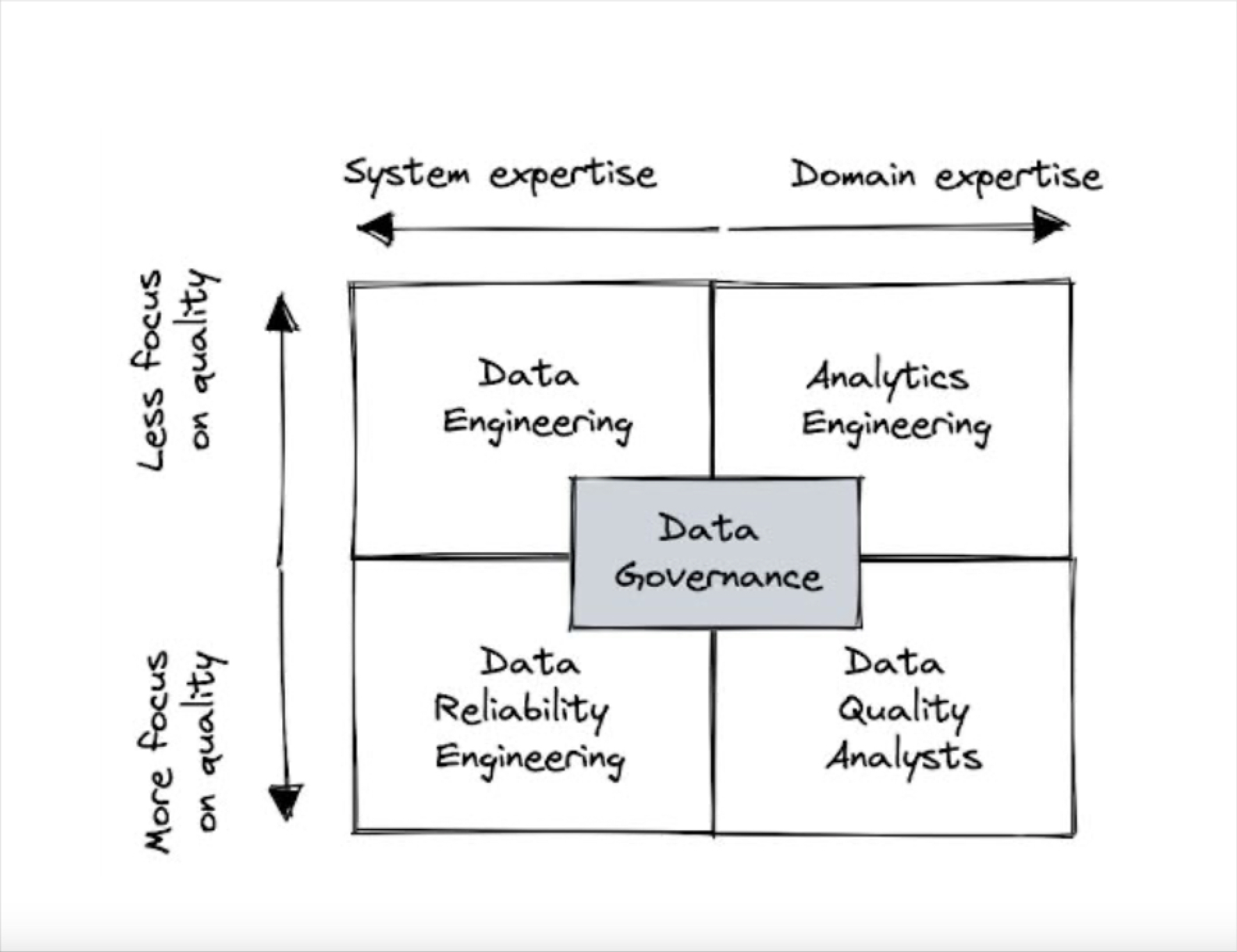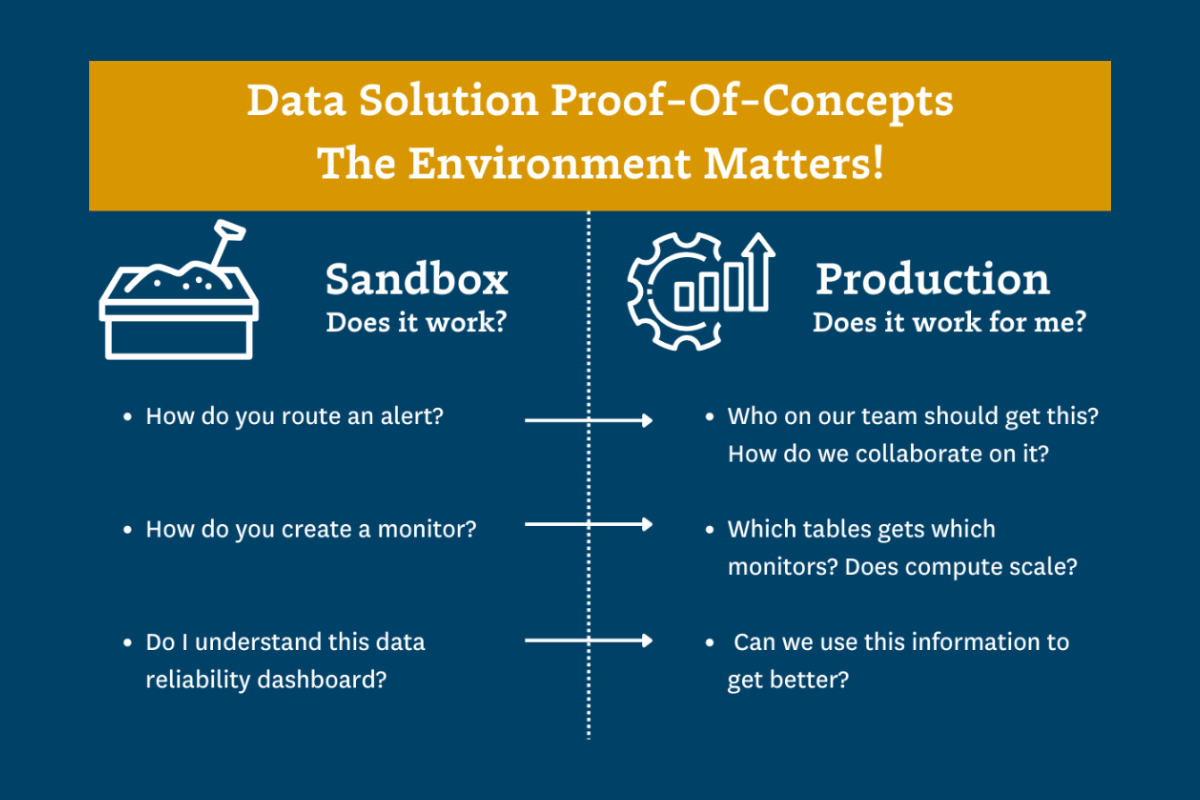Data Quality Engineer: Skills, Salary, & Tools Required
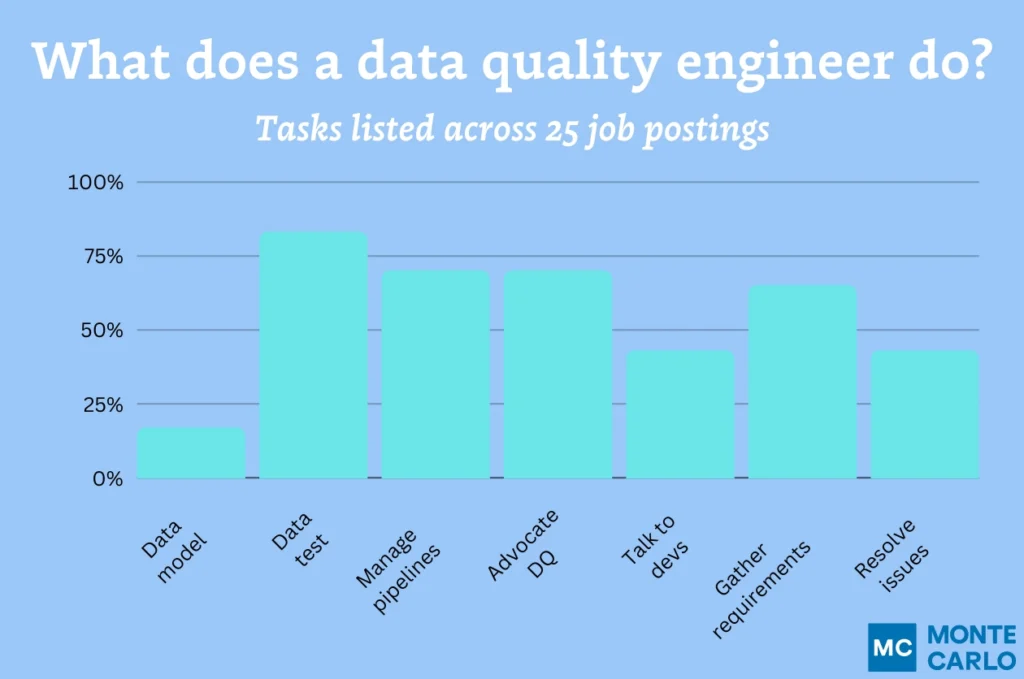
In This Article:
In This Article:
What a data quality engineer does
A data quality engineer ensures reliable, high quality data is delivered to internal and external stakeholders and applications. These specialists are also commonly referred to as data reliability engineers.
To be successful in their role, data quality engineers will need to gather data quality requirements (mentioned in 65% of job postings) from relevant stakeholders. These data consumers could include business executives, developers, or even other data teams.
This is critical because data curation is costly and data quality is subjective. A financial dashboard may need to be accurate within a penny while a machine learning model may only need directionally accurate (but constantly refreshed) data. The most common use case data quality engineers support are:
- Analytical dashboards: Mentioned in 56% of job postings
- Machine learning or data science teams: Mentioned in 34% of postings
- Gen AI: Mentioned in one job posting (but really emphatically).
The data quality engineer will then need to design or optimize data architectures and pipelines to ensure these requirements are met (mentioned in 70% of job postings).
This is a continuous process as data environments are complex, interdependent, and constantly changing. To account for this, data quality engineers will monitor data quality by designing and deploying data testing at scale (mentioned in 83% of job postings).
A few leading organizations have realized that testing is difficult to scale and have specified tools that take a more sophisticated, automated approach such as data observability platforms.
Organizations are placing an emphasis on the communication skills of data quality engineers with 74%% specifying the need to advocate for data quality across teams and 43% specifically mentioning collaborating with developer teams. Interestingly, only 43% specifically mention resolving the data quality issues that do arise.
The skills, languages and tools of a data quality engineer
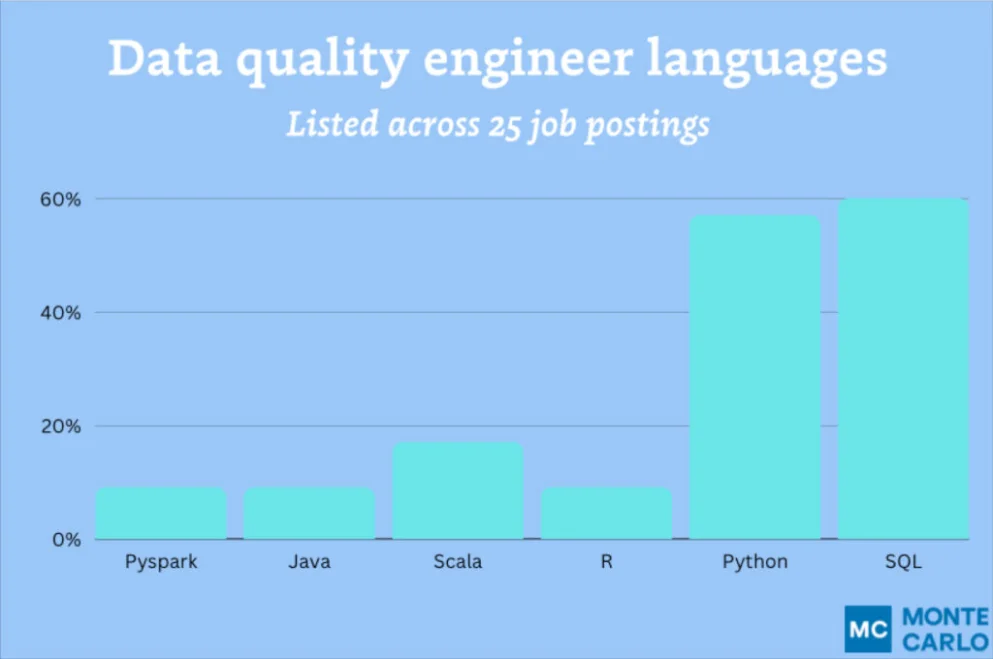
Data quality engineers need to be highly skilled in multiple programming languages such as SQL (mentioned in 61% of postings), Python (56%), and Scala (13%). About 61% request you also have a formal computer science degree.
Data quality engineers also need to have experience operating in cloud environments and using many of the modern data stack tools that are utilized in building and maintaining data pipelines. 78% of job postings referenced at least part of their environment was in a modern data warehouse, lake, or lakehouse.
In terms of specific processing techniques for large scale data, 13% of job postings mentioned Spark, 17% mentioned Kafka/Kinesis, 17% mentioned Hadoop, and one posting referenced S3.
As if that isn’t enough, slightly less than half of the job postings requested strong knowledge of agile development or DevOps project management techniques as well as knowledge of a specific domain (like healthcare data).
Example data quality engineer job description
One of the most representative data quality engineering job postings I reviewed is from a post on LinkedIn Jobs. See the truncated version below:
Description
The Data Quality Engineer role reports to the Director, Data Management for Human Resources. The role is part of our Enterprise Data Platform team that manages the ingestion, storage, modeling, and consumption of data. The role is responsible for supporting workloads running on the Azure Big Data environment and associated technologies. This position will be responsible for creating and monitoring the data solutions, resolving incidents, optimizing workloads, tuning solutions, and making solution enhancements. The role will focus on development and production support and will also take part in making enhancements to the core platform.
Responsibilities
- Building data ingestion and ETL pipelines at an enterprise level, following corporate standards and best practices.
- In addition to ingestion and ETL development, there will also be occasions where Azure function apps and Logic apps will be built to integrate with legacy and external systems.
- Work with Senior Data Engineers and Architects to understand and implement solutions based on high level designs and requirements.
- Work closely with Project Managers / Scrum Masters, Data Modelers and QA Engineers in both Agile and Waterfall work settings to deliver solutions against a deadline that meet the requirements of the business and product stakeholders.
- Stay current with big data, ETL and general data technologies, with a strong focus on the Azure technology stack.
- Monitoring, investigating, and maintaining ongoing production systems, specifically triggered and schedule ETL pipelines and data ingestion patterns.
- Continually focus on self-development by allocating time to continually develop your ingestion, ETL and general data skills.
- Optimization and refactoring of existing platform and legacy solutions.
- Migration of legacy systems into a modern data platform.
- Think critically about the data solutions you are delivering. You need to understand it and expand its implications beyond the numbers alone. As a critical thinker, you can think analytically about data and ETL, identifying patterns and extracting actionable insights and information from the solutions you have built.
Data quality engineer salary
Glassdoor reports the average annual salary for a data quality engineer in 2025 is about $112,150, but the estimated total pay for a Data Quality Engineer is closer $141,030 per year.

However, you will likely get paid more if you show up in the office. In-person job postings were listed for an average of around $125,000 while remote positions were listed at an average annual salary of $92,000.
Data quality engineer career path and future demand
While data quality is frequently the responsibility of everyone across the data team, typically a specific role will have accountability. Based on a recent poll of 200 data professionals the most common owners of data quality within an organization are:
- Data engineers: 50%
- Data analysts: 22%
- Software engineers: 9%
- Data reliability/quality engineers: 7%
- Analytics engineers: 6%
- Data governance professionals: 5%
- Business stakeholder: 3%
Organizations often choose to specifically define and fill a role for a data quality engineer when they have larger data teams that can benefit from specialization or data quality has a particularly large or direct impact on business value.
The latter case tends to be when data is customer facing; supporting critical operations;
powering machine learning applications; guiding AI models; or data IS the product. In the job postings we reviewed, these organizations tended to be particularly clustered within the healthcare, government contracting, finance, and IT industries.
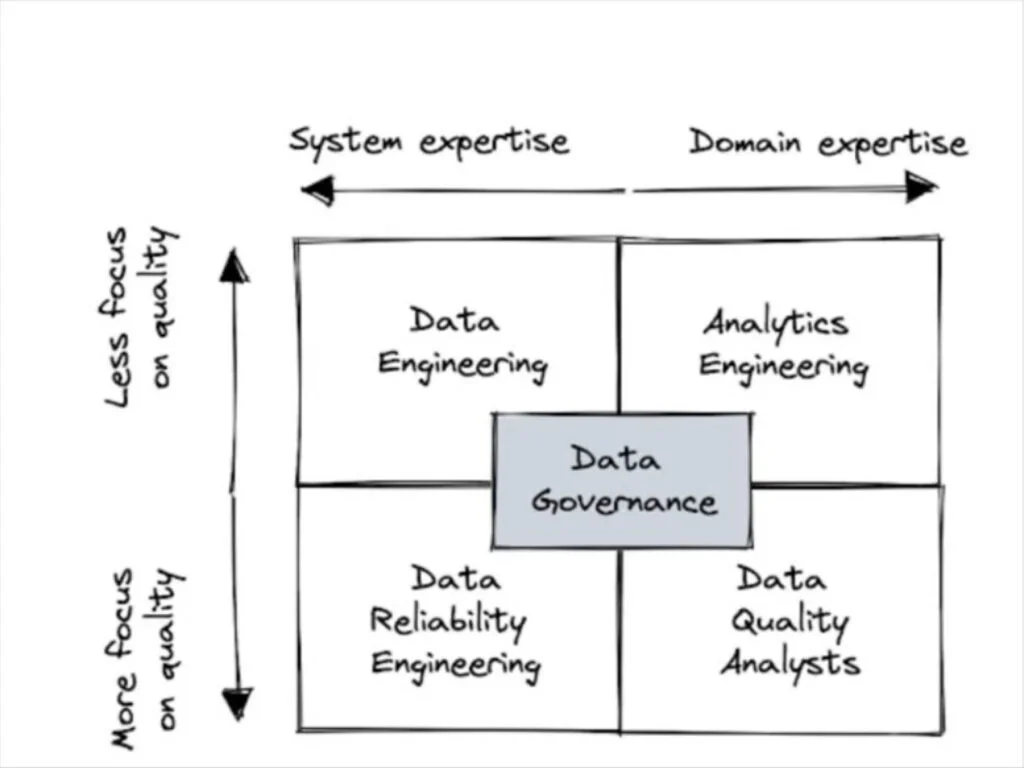
Data quality engineers will have a stronger focus and specialization on data quality than their data engineering colleagues and be more systems focused than their business minded data quality analyst peers.
This combination can make them particularly effective at improving data quality processes and resolving data quality incidents at scale. For example, after Mercari deployed a data reliability engineering team, they saw their data incident status update rate jump from about 10% to close to 100%.
Whether the role is called a data quality engineer, data reliability engineer, or just a plain data engineer, it’s clear the demand for improving data quality is only going to increase. The data professionals that can master these skills, tools, and techniques will likely have a bright and fulfilling career.
Are you a data quality engineer or data professional looking for something better than data testing to ensure data quality? Talk to us!
Our promise: we will show you the product.
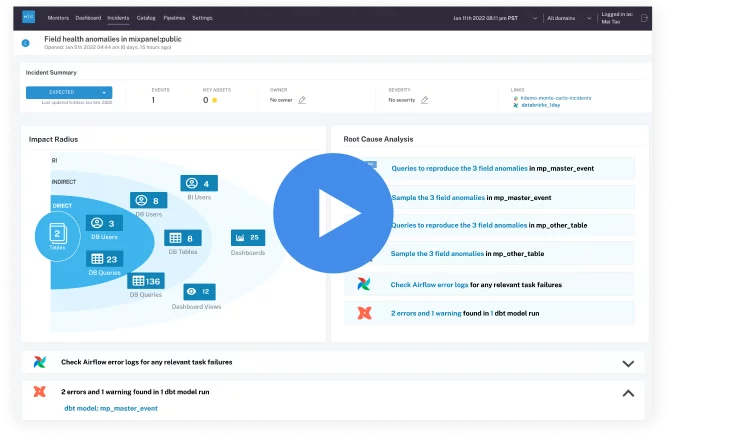 Product demo.
Product demo.  3 Steps to AI-Ready Data
3 Steps to AI-Ready Data 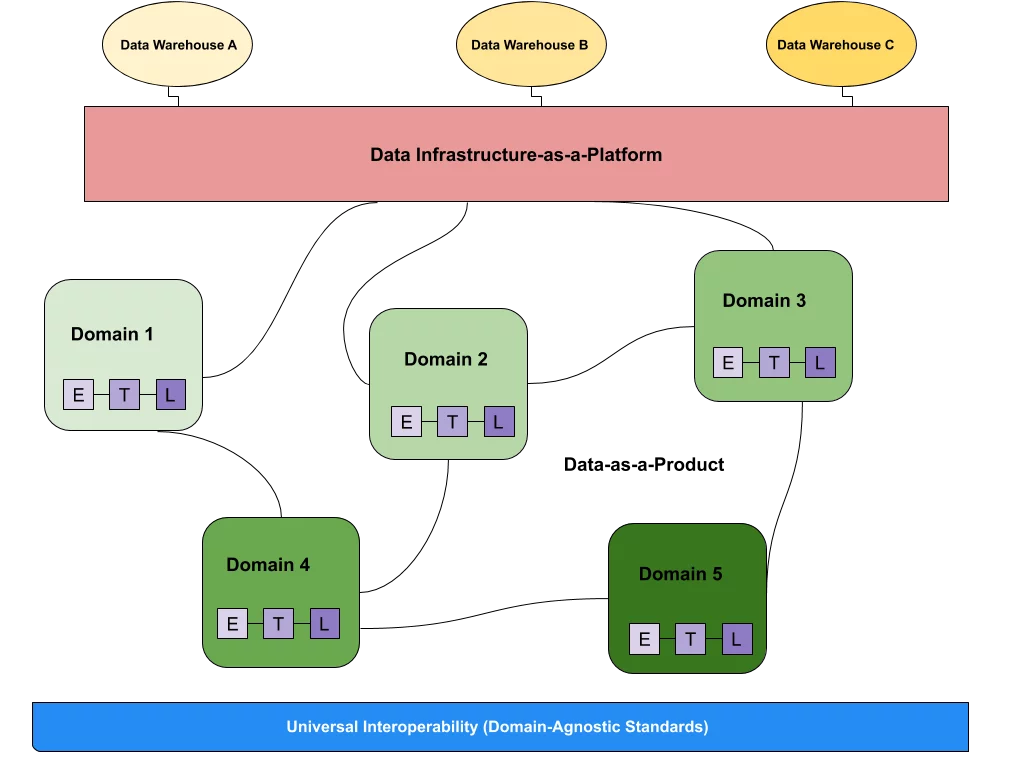 What is a data mesh--and how not to mesh it up
What is a data mesh--and how not to mesh it up 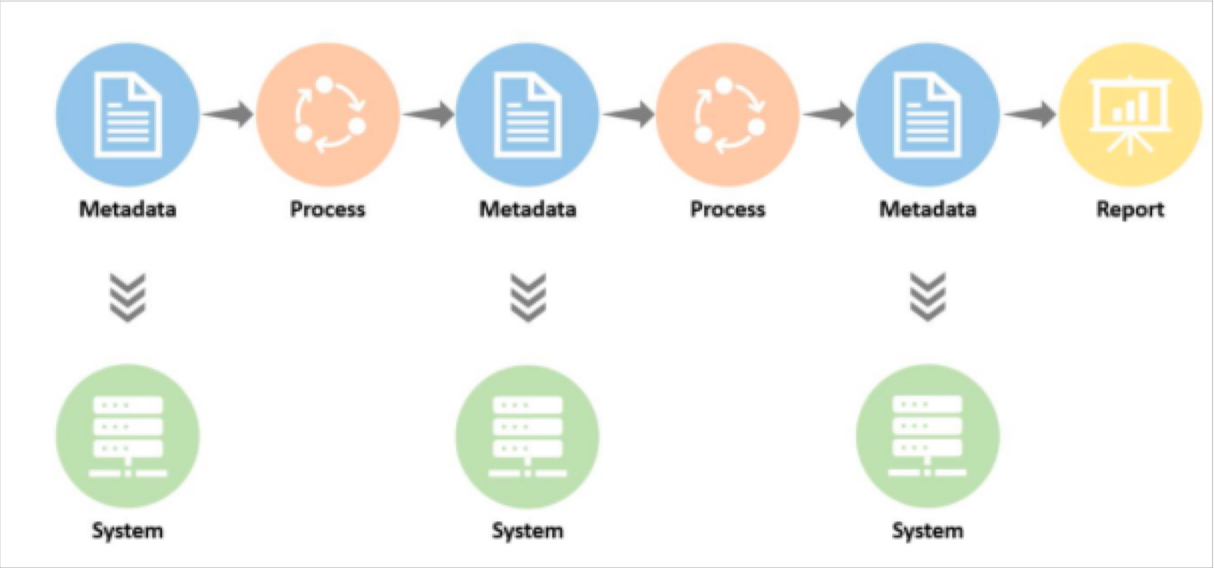 The ULTIMATE Guide To Data Lineage
The ULTIMATE Guide To Data Lineage 
